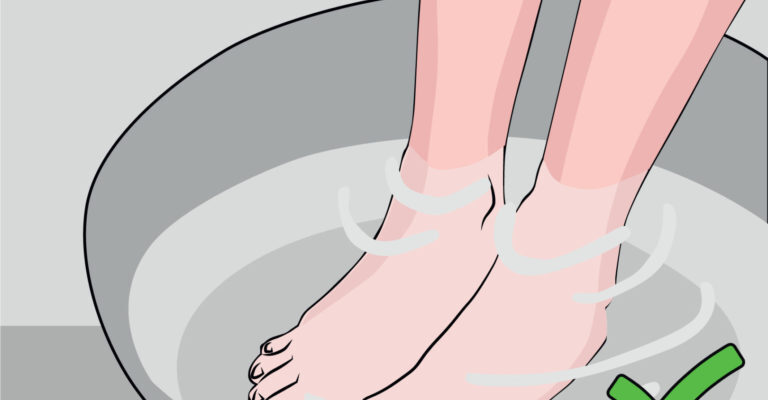
Introduction:
Living with diabetes requires a multifaceted approach to health management, and one area that demands special attention is foot care. Diabetes can have a profound impact on the feet, leading to complications that, if left unchecked, may result in serious consequences. In this blog, we will explore the importance of foot care for individuals with diabetes, delve into common foot-related complications, and discuss proactive measures to maintain healthy feet and prevent complications with insights from the best consultant physician in Nagpur.
The Diabetes-Foot Connection:
Diabetes can affect the feet in various ways, and individuals with this condition are at a higher risk of developing foot problems. One of the primary complications is peripheral neuropathy, a condition that damages the nerves, particularly in the extremities. This can lead to a loss of sensation in the feet, making it challenging to detect injuries, blisters, or ulcers.
Additionally, diabetes can impair blood circulation, reducing the body’s ability to heal and fight infections. When combined with neuropathy, even minor injuries can escalate into serious complications. Foot issues for people with diabetes often stem from a combination of factors, including neuropathy, poor circulation, and susceptibility to infections.
Common Foot Complications:
- Neuropathic Ulcers: Reduced sensation in the feet can lead to the development of ulcers, commonly on the soles of the feet. Due to a lack of awareness, these ulcers can go unnoticed, increasing the risk of infection.
- Calluses and Corns: Diabetes-related foot deformities or pressure points can result in the formation of calluses and corns. If not addressed, they can lead to ulceration.
- Infections: Impaired circulation and compromised immune function make individuals with diabetes more susceptible to infections. Even minor cuts or wounds can become serious if not promptly treated.
- Charcot Foot: This condition involves the weakening of the bones in the foot, leading to fractures and deformities. It is often a consequence of peripheral neuropathy.
- Peripheral Arterial Disease (PAD): Diabetes increases the risk of PAD, a condition characterized by narrowed arteries in the legs and feet, leading to reduced blood flow.
Proactive Foot Care Measures:
- Daily Foot Inspections:Regularly inspecting the feet is crucial for early detection of any issues. Check for cuts, bruises, blisters, or changes in skin color. Use a mirror or seek assistance if it’s challenging to inspect the feet thoroughly.
- Proper Nail Care:Trim toenails straight across and avoid cutting into the corners to prevent ingrown toenails. If nail care is challenging due to reduced sensation or other complications, seeking professional help is advisable.
- Moisturization:Keep the feet moisturized to prevent dry skin and cracking. However, avoid applying lotion between the toes to prevent excessive moisture, which can lead to fungal infections.
- Protective Footwear:Choose well-fitting, comfortable shoes to reduce the risk of friction and pressure points. Avoid tight or pointed shoes, opt for breathable materials, and break in new shoes gradually to prevent blisters.
- Regular Exercise:Engage in regular, low-impact exercises to promote circulation and overall foot health. Consult with a healthcare professional to determine the most suitable exercise routine.
- Blood Sugar Control:Maintaining optimal blood sugar levels is fundamental in preventing and managing diabetes-related foot complications. Regular monitoring, adherence to medication, and a healthy lifestyle contribute to better blood sugar control.
- Professional Foot Care:Schedule regular foot check-ups with a healthcare professional, preferably a podiatrist or a healthcare provider experienced in diabetic foot care. They can identify issues early and provide appropriate guidance.
- Quit Smoking:Smoking exacerbates vascular issues and hinders the body’s ability to heal. Quitting smoking is a crucial step in promoting overall vascular health and preventing complications.
- Elevate Feet When Resting:Elevating the feet when sitting or lying down helps reduce swelling and promotes blood circulation. Make it a habit to elevate your feet for short periods throughout the day.
- Manage Existing Foot Conditions Promptly:If any foot issues arise, such as calluses, corns, or ingrown toenails, seek prompt attention from a healthcare professional. Early intervention can prevent these issues from escalating into more severe complications.
Conclusion:
In the realm of diabetes management, foot care occupies a pivotal role in preventing complications and maintaining overall well-being. Individuals with diabetes must be proactive in caring for their feet, given the heightened risk of neuropathy, circulatory issues, and infections.
By incorporating daily foot inspections, proper nail care, moisturization, and adherence to a comprehensive foot care routine, individuals with diabetes can significantly reduce the risk of complications. Additionally, maintaining optimal blood sugar levels, exercising regularly, and seeking professional guidance contribute to a holistic approach to diabetes and foot health.
Remember, when it comes to diabetes and foot care, prevention is key. Taking proactive measures today can go a long way in ensuring a healthier and more comfortable tomorrow for individuals living with diabetes. Always consult with healthcare professionals for personalized advice tailored to your specific health needs and circumstances.










